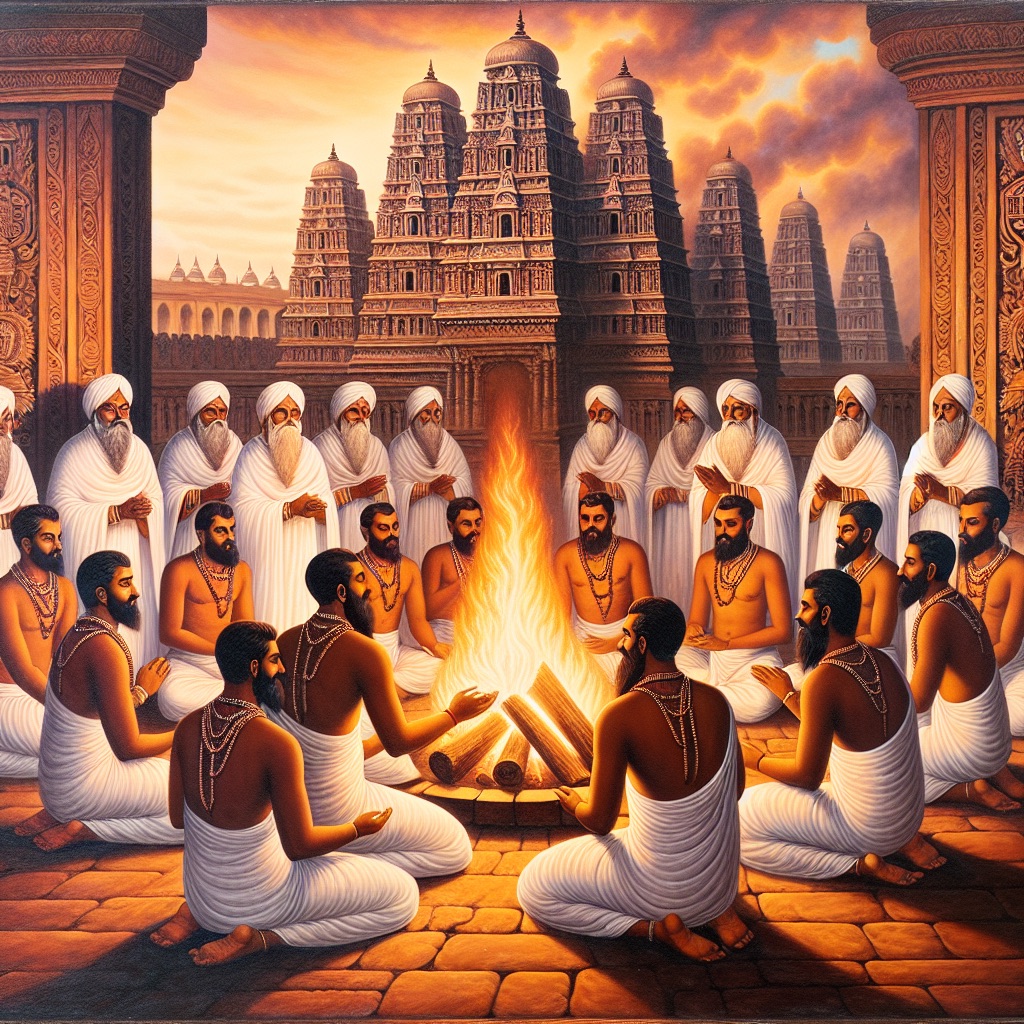Verse 1-1-1
The head of the sacrificial horse is the dawn, its eye the sun, its vital force the air, its open mouth the fire called Vaiśvānara, and the body of the sacrificial horse is the year. Its back is heaven, its belly the sky, its hoof the earth, its sides the four quarters, its ribs the intermediate quarters, its members the seasons, its joints the months and fortnights, its feet the days and nights, its bones the stars and its flesh the clouds. Its half-digested food is the sand, its blood-vessels the rivers, its liver and spleen the mountains, its hairs the herbs and trees. Its forepart is the ascending sun, its hind part the descending sun, its yawning is lightning, its shaking the body is thundering, its making water is raining, and its neighing is voice.

